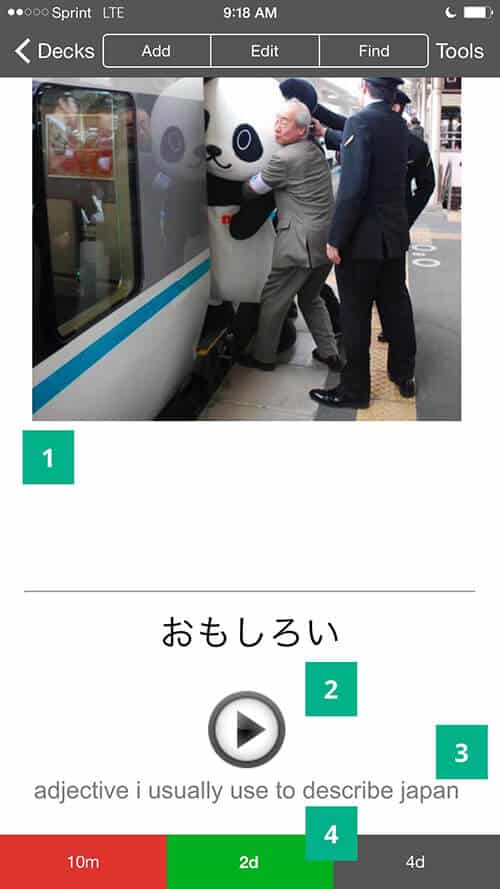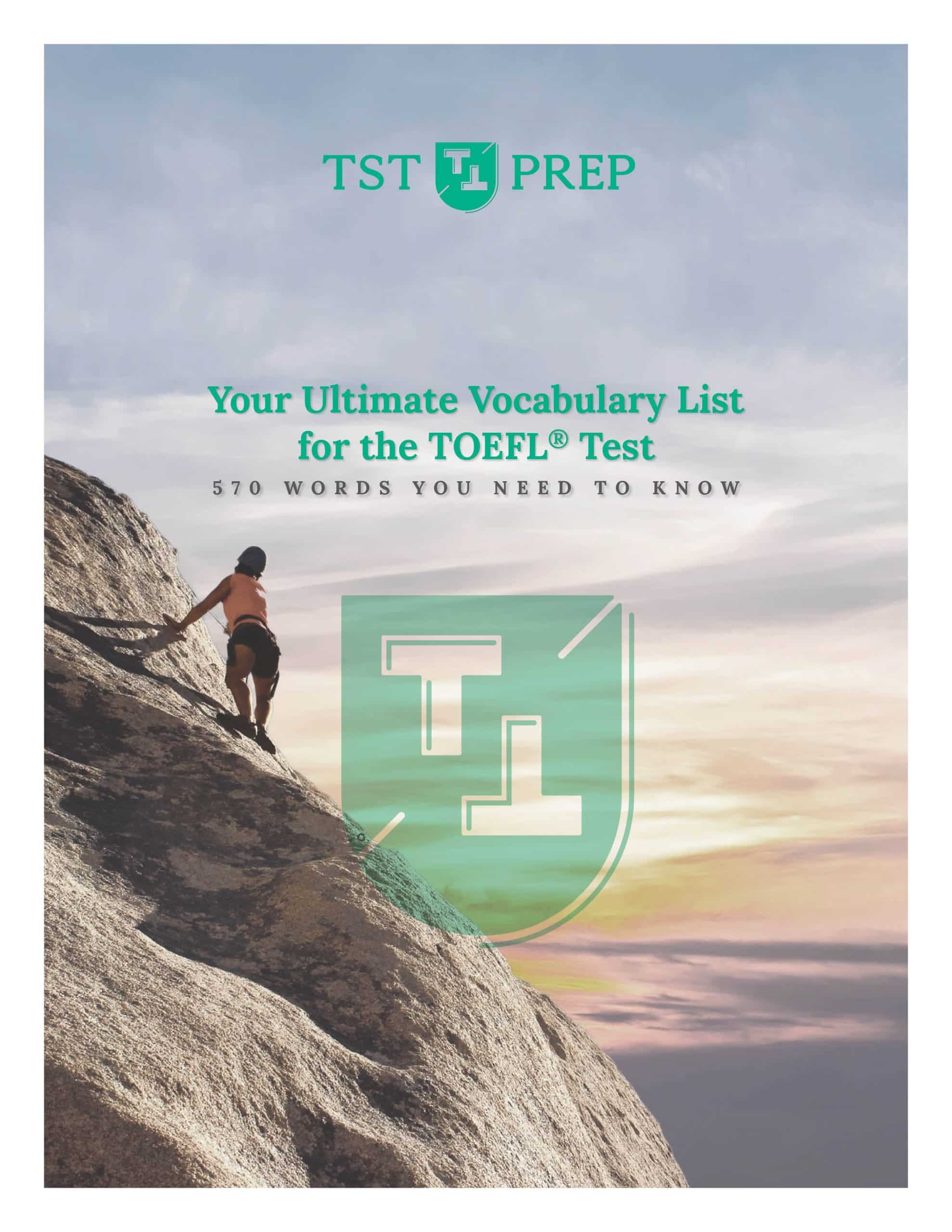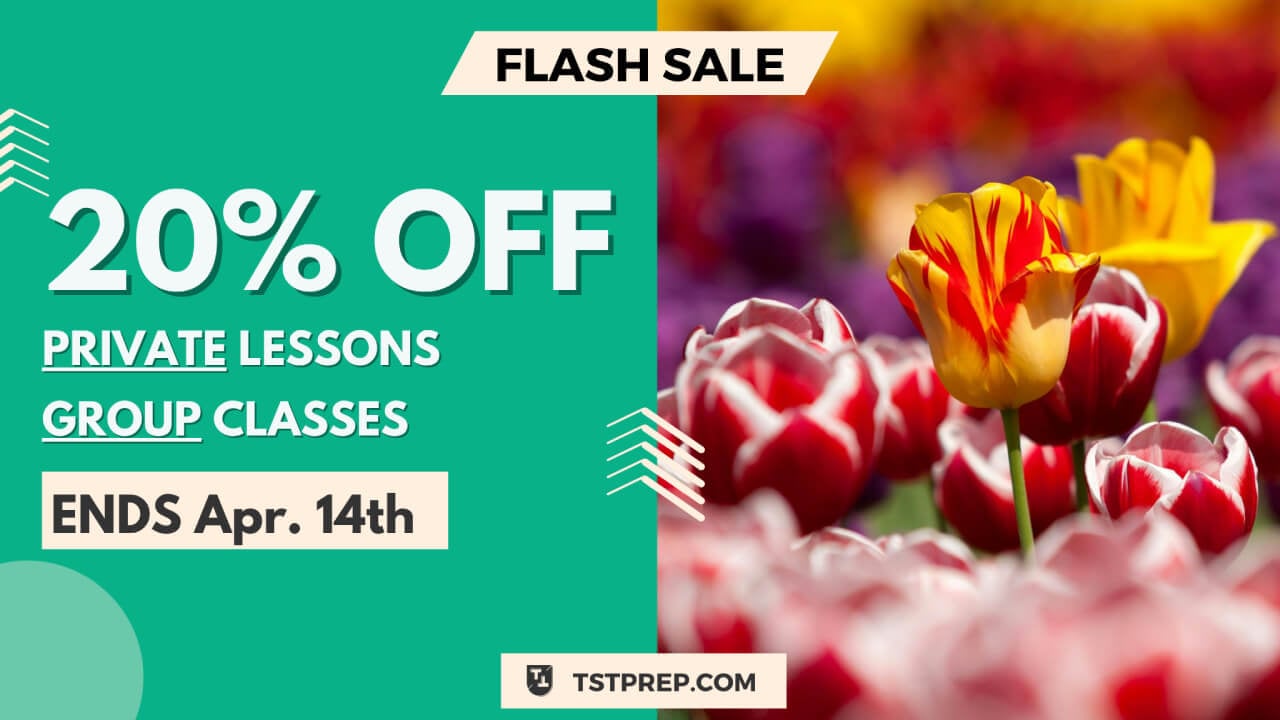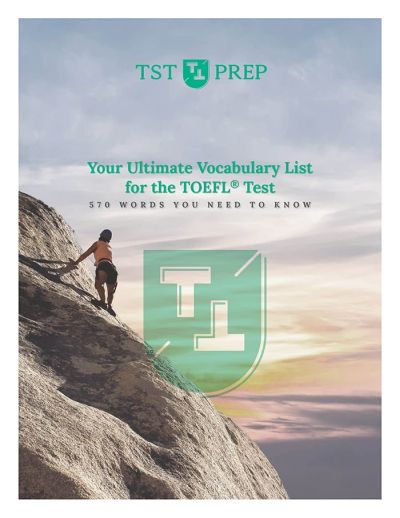If you’re anything like me, then you want quick answers to complicated problems.
You know that you need to know more vocabulary for the TOEFL, but you don’t know where to look or what to study.
Well, we have taken the best TOEFL vocabulary pdf list, also known as the Academic Word List by Dr. Averil Coxhead, and repackaged it for TOEFL takers just like you.
Now I know some of you are in a hurry (this is the Internet after all), so I will put a link to Your Ultimate Vocabulary List for the TOEFL Test right here so you can download it right away.
But…
Downloading a vocabulary list will not help you much for the TOEFL.
Not only do you have to know these words, but you have to learn why they are important, what they mean, and how to use them on test day.
Here’s how to improve your vocabulary:
Why is the Ultimate Vocabulary List for the TOEFL special?
- law
- finance
- history
- psychology
- biology
- chemistry
The Academic Word Family List |
||||
|---|---|---|---|---|
| WORD | VERB | NOUN | ADJECTIVE | ADVERB |
| abandon (v./n.) | abandonment | abandoned | ||
| abstract (adj./v./n.) | abstraction, abstractor, abstractionism, abstractionist |
abstracted | abstractedly, abstractly | |
| academy (n.) | academics, academism, academia, academicism, academician |
academical, academic |
academically | |
| access (n./v.) | accessibility | accessible | accessibly | |
| accommodate (v.) | accommodation, accommodationist | accommodative, accommodating |
accommodatingly | |
| accompany (v.) | accompaniment, accompanist | accompanying | ||
| accumulate (v.) | accumulation, accumulator | accumulative | ||
| accurate (adj.) | accuracy | accurate | accurately | |
| achieve (v.) | achievement, achiever | achievable | ||
After you download this powerful TOEFL Vocabulary pdf list, follow the steps below so you can actually remember their meaning and use them on test day.
Step 1 – Identify your vocabulary weaknesses
First, review the list and circle the words you don’t know. You should find that there are a bunch of words you actually already know the meaning of.
Below is an example:
The Academic Word Family List |
||||
|---|---|---|---|---|
| WORD | VERB | NOUN | ADJECTIVE | ADVERB |
| abandon (v./n.) | abandonment | abandoned | ||
| abstract (adj./v./n.) | abstraction, abstractor, abstractionism, abstractionist |
abstracted | abstractedly, abstractly | |
| academy (n.) | academics, academism, academia, academicism, academician |
academical, academic |
academically | |
| access (n./v.) | accessibility | accessible | accessibly | |
| accommodate (v.) | accommodation, accommodationist | accommodative, accommodating |
accommodatingly | |
| accompany (v.) | accompaniment, accompanist | accompanying | ||
| accumulate (v.) | accumulation, accumulator | accumulative | ||
| accurate (adj.) | accuracy | accurate | accurately | |
| achieve (v.) | achievement, achiever | achievable | ||
Notice how I only circle the headwords on the left. Don’t try to study every single word in a given row. They all have a similar meaning to the headword. All you need to understand is that each form of the word (verb, noun, adjective, adverb) is connected to the meaning of the headword on the left.
If you know the meaning of the headword, you know the meaning of all the other words in the same row.
Once you have identified the words you need to study, it’s time to move on to flashcards.
Wait, wait, wait… flashcards?
YES!
Flashcards are amazing for studying vocabulary because they use a spaced repetition system. When you open up your flashcard app, they will show you the vocabulary your brain is about to forget.
Believe it or not, there is actually an algorithm for how likely you are to remember something, and it is built into some of the more popular flashcard apps. Check out the graph:

Notice how likely you are to forget something if you don’t review it after 3 days! That’s what makes flashcards such a powerful tool for building your TOEFL vocabulary.
Pretty cool, right?
No? Well, I’m a teacher, I get excited by educational apps!
Step 2 – Find your flashcard app
Step 3 – Choose your flashcard style
Make your own flashcards.
When you start to use these flashcard apps, you will notice pre-made decks. While downloading a pre-made deck may look like a great way to save time, in the long run, it will have a negative impact on the amount of information you retain.
One of the best ways to remember new TOEFL vocabulary is to think about it on your own. Figure out the meaning and write out a few example sentences on your own. You can even take it one step further and imagine you are a teacher who has to help another student learn this new word.
Use this list of words to create your own flashcards and feel free to experiment with the design.
Here’s an example from Magoosh’s flashcard app.
- The vocabulary word along with an audio file of the pronunciation
- The definition of the word and part of speech
- An example sentence

Here’s another example of one of my own flashcards when I was studying Japanese with Anki:
There are a few things added to this example:
An image to provide a visual association with the word
The word in Japanese along with an audio file
A mnemonic to help me recall the word
Three options contingent on how well I remembered the word.
***Also, keep in mind, when you are studying, you will just see the word on one side and then you will have to guess the meaning or example sentence before revealing the answer. Think of flashcards like mini-tests.

Testing is how to measure whether you truly know something. Consistent testing is how to remember what you have learned.
Step 4 – Create your study schedule
I got this idea from a friend of mine who wanted to cook more homecooked meals. He was eating out for lunch and gaining weight.
Like all of us, he struggled to find the time to prepare well-balanced homecooked meals daily (and don’t forget all the dishes!).
He started to prepare his meals for the week on Sunday. He batched all of his cooking and washing time to a single day. He separated his lunch for each day in the refrigerator to save time each day and eat healthy without even thinking about it.
Do the same for your TOEFL vocabulary studies. Plan out the when and where you plan to study each day and what material you will go over. Actually, write it down, or use a spreadsheet like the example below.
| 1/28 MONDAY |
1/29 TUESDAY |
1/30 WEDNESDAY |
|
| 8:00 AM | 8:00 - 8:15 - Review flashcards 8:15 - 8:30 - Create new flashcards |
8:00 - 8:15 - Review flashcards 8:15 - 8:30 - Practice writing example sentences |
|
| 9:00 AM | |||
| 9:30 AM | |||
| 10:00 AM | |||
| 10:30 AM | |||
| 11:00 AM | |||
| 11:30 AM | |||
| 12:00 PM | |||
| 12:30 PM | 12:30 - 1:00 - Meet teacher, share example sentences, edit |
||
| 1:00 PM |
The very fact that you physically write out your weekly study schedule will make it far more likely that you stick to it.
In Conclusion
Again, don’t forget to pick up your copy of your Ultimate Vocabulary List for the TOEFL Test
This Academic Word List has been proven to contain 570 of the most frequent words that show up in academic texts across multiple disciplines.
But remember…
Downloading this vocabulary list isn’t enough to remember the meaning and usage of all these words.
You have to practice, and the best way to practice is by creating your very own flashcards.
- Step 1: Identify your vocabulary weaknesses
- Step 2: Find your flashcard app
- Step 3: Choose your flashcard style
- Step 4: Create your study schedule











35 Comments
Cristiani Basso
Hi.
How to use the flashcards? I take them to my cell phone but I don’t know how to use them.
Please, can you help?
Josh Macpherson
Hi Cristani, and thanks for the question. A lot depends on the program you are using. There should be directions or video instructions if you are using a popular flashcard app like Anki or Cram. However, some are more user-friendly than others. I do NOT recommend Anki for beginners. Try a site like Quizlet, Cram or Memrise and follow their instructions.
Just be aware that it will take a little time to learn and get used to.
Gulay Ozkul
good
Josh Macpherson
Thanks Gulay! Happy to help 🙂
Omid
Hello
Nice job, I really appreciate your efforts. It was an extremely important step that was taken by such a great professor.
God bless you, buddies.
Josh Macpherson
Thank you for your kind words Omid and I’m glad you found it helpful. This vocabulary list really is a great tool for students who need to improve their vocabulary. Keep fighting!
Dais
Thanks for your guidance!
Josh Macpherson
Thanks for taking the time to leave a comment Dais! I appreciate it 🙂
N'faly Keita
Hi Josh MacPherson .
I am Keita from Mali ( French Speaking Country ) .
Your course materials for preparing for the TOEFL have been helpful to me .
I am still following your videos and hope to be able to deal with the speaking and listening sections with the new change on TOEFL.
Thanks so much for the sharing .
Josh Macpherson
Thank you Keita for the comment and for your kind words. Let me know if there is any other way I can help!
Josh Macpherson
Thanks for the compliment! Let me know if you have any questions 🙂
Elina
Thank you for everything, your videos are very helpful and enjoyable.
Josh Macpherson
I appreciate that Elina. Let me know if there are any topics you would like me to cover in future videos.
Priya
Hi. I gave test two times as I have a deadline that is approaching soon. I can’t score more than 13 in reading section and 20 in writing section. The problem with reading is I can’t finish 1 passage in 20 mins. Minimum I am taking 30 mins for 1 passage and later I end up marking random answers. Also, I can’t concentrate once I have fear of time. I even hide the clock and that’s not helping. Please guide me. I really need to increase scores.
Josh Macpherson
The first thing I would recommend is, of course, to read our guide to TOEFL Reading time management here – https://tstprep.com/a-guide-to-toefl-reading-time-management/
It still applies for the new test format. Besides that, it sounds like your problem is fairly serious, so you might want to consider working with a teacher. You can learn about the trial lesson here. https://tstprep.com/toefl-store/toefl-private-lessons/
Hope that helps!
Ahmad Fahim
Thank you very much for making toefl word list to students of english language and I want to learn your prepared toefl word list
Josh Macpherson
I’m happy to hear you find it helpful 🙂
Elizaveta
Hello Josh!
Thank you very much for all the things you do for the TOEFL students!
Where can I get these “native speaker contractions” from the Common Mistake #2 “You always use a script”. Is there anywhere a list of them?
These are the reasons why ->That’s why…
I believe that-> To me…
I disagree that…-> I can’t stand it when…
Thanks!
Josh Macpherson
Hey Elizaveta. Just sent an email to you. Hope it helps!
Nidal Shater
Hello and thanks a lot for this amazing Website and content
I have a question
I have downloaded ETS Tofel Sampler program on Windows, I did the exam but didn’t find a way to correct them
How Could I do this
Thanks in advanced
Josh Macpherson
Hi Nidal, I’m not as familiar with ETS’ software, so you will have to ask them, but the sample tests should have come with an answer key for the reading and listening. As to the speaking and writing section, you will probably have to pay extra for those to be graded since it requires either a human grader or special program.
We have TOEFL Speaking and Writing evaluations as well if you are ever in need you can find out more here – https://tstprep.com/toefl-store/
Thanks for asking!
Mehnaz
Hi, This is Mehnaz here. Actually I’m planning fir TOEFL test. But i have no much idea about that. I subscribe your channel. I watched your video and visit your website. I get some idea about toefl. But you please make more video about TOEFL test.
Josh Macpherson
Hi Mehnaz and thank you for watching. We are working on videos right now! Thank you for the positive feedback 🙂
Maria Aldenice Da Silva
many doubts .
Josh Macpherson
I’m sorry to hear that Maria. I hope it gets easier for you.
Maria Aldenice Da Silva
I need to read more.
Josh Macpherson
Haha, me too. One great site for reading for language learners is LingQ. I often recommend it to my students. Here’s a link – https://www.lingq.com/en/
Jem
Hi there, I’m Jem, from Turkmenistan, as far as I can see everyone gets welcoming reply, so the reason I’m writing is that I want those toefl vocabulary books, like 5000 toefl words, so if you do have those books, please kindly send them to me, I’m desperate English learner, and want to improve myself to advanced learner, thank you so much…
Josh Macpherson
Hi Jem, 5000 vocabulary words is quite a lot, and usually, those types of books aren’t so helpful. I would definitely start with this TOEFL vocabulary list and then read a lot. You will learn more when you read words in context when compared to just studying a list of vocabulary.
And if you want to use these vocabulary words when you speak, the best way would be to practice them with a teacher – https://tstprep.com/toefl-store/american-accent-builder-private-lessons/
Al-obedi
What a great and informative website. This is the website that I have been dreaming of LOL, and yeah my dream came true. Thanks so much for your massive efforts. Mr. josh, do you give TOEFL classes one by one? and with you please. Thanks.
Josh Macpherson
Hi there and thank you for your kind words. I don’t teach right now, but I always schedule a one0time-per-month call with all of the students enrolled in private classes, there are usually about 10x per meeting. So, while I won’t be teaching you in class, we can meet during these coaching calls. You can find a link to a trial lesson on this page – https://tstprep.com/toefl-store/toefl-private-lessons/
Eddy Galvan
Thank you so much for the Ultimate TOEFL Vocabulary list.
Josh Macpherson
Thanks for the comment and good luck in your studies!
Mohamed
Hey, you are a hard-working teacher, much love from Morocco.
Tej Prasad Adhikari
Thanks for this huge contribution regarding the TOEFL resources.